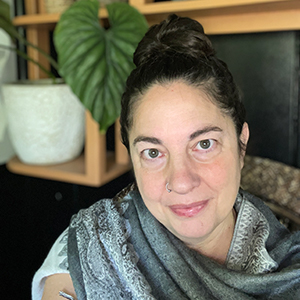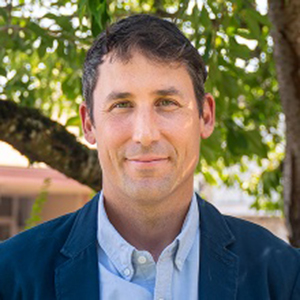Paris “AJ” Adkins-Jackson, PhD, MPH
Assistant Professor of Epidemiology and Sociomedical Sciences
Columbia University, Mailman School of Public Health
Bio: Paris “AJ” Adkins-Jackson, PhD, MPH is a multidisciplinary community-partnered health equity researcher and Assistant Professor in the Departments of Epidemiology and Sociomedical Sciences in the Mailman School of Public Health at Columbia University. Dr. AJ’s research investigates the role of structural racism on healthy aging for historically marginalized populations like Black and Pacific Islander communities. Her primary project examines the role of life course adverse community-level policing exposure on psychological well-being, cognitive function, and biological aging for Black and Laninx/a/o older adults. Her secondary projects tests the effectiveness of an anti-racist multilevel pre-intervention restorative program to increase community health and institutional trustworthiness through multisector community-engaged partnerships. Dr. AJ is an HBCU alumna of the psychometrics doctoral program at Morgan State University and a board member of the Society for the Analysis of African American Public Health Issues.
Rachel Donnelly, PhD
Assistant Professor of Sociology
Vanderbilt University
Bio: Rachel Donnelly is Assistant Professor of Sociology at Vanderbilt University. Her research focuses on social determinants of health across the life course, with an emphasis on stress, work, and family relationships. Moreover, her research considers how disparate experiences based on gender, sexual orientation, and race/ethnicity (and intersections therein) shape mental and physical health outcomes. In recent research supported by the NIH, Dr. Donnelly examines how stressors and state-level policies jointly shape inequities in mental health during the COVID-19 pandemic.
Emily Dore, PhD
Postdoctoral Research Fellow, Social Policies for Health Equity Research Center
Harvard T. H. Chan School of Public Health
Bio: Emily Dore, Ph.D. is a postdoctoral research fellow at the Social Policies for Health Equity Research (SPHERE) Center at the Harvard T.H. Chan School of Public Health. She received her Ph.D. in Sociology from Emory University in 2024, and Master of Public Health and Master of Social Work dual degrees at Boston University in 2017 and 2015 respectively. Emily studies the health effects of state-level structural determinants of health, including state-level policies and other state contexts, along the life course. Her work has recently appeared in the Journal of Health and Social Behavior, Health Affairs, and BMC Research Notes. Emily’s research currently receives funding support from the National Institute on Minority Health and Health Disparities.
Patricia Homan, PhD
Associate Professor of Sociology
Florida State University
Bio: Patricia (Trish) Homan is an Associate Professor of Sociology and Director of Research and Strategic Initiatives for the Public Health Program at Florida State University. She is also an associate of FSU’s Pepper Institute on Aging and Public Policy and the Center for Demography and Population Health. Her research focuses on developing theory and measurement for structural sexism, structural racism, and other forms of structural oppression, and examining how these forces shape health in the United States. Her work has been published in American Sociological Review, Demography, American Journal of Public Health, The Milbank Quarterly, Health Affairs, Social Forces, Social Science & Medicine, Journal of Health and Social Behavior, The Gerontologist, and The Journals of Gerontology: Series B, among other outlets. Her research has won multiple national awards including the 2022 NIH Matilda White Riley Early Stage Investigator Award, the 2022 Early Career Gender Scholar Award from SWS South, the 2021 ASA Sex & Gender Section Distinguished Article Award, and the 2019 Roberta G. Simmons Outstanding Dissertation Award from the ASA Medical Sociology Section.
Chris Lowenstein, PhD
Postdoctoral Scholar, Department of Epidemiology and Population Health
Stanford University
Bio: Christopher (Chris) Lowenstein is a Postdoctoral Scholar in the Department of Epidemiology & Population Health at Stanford University. His research primarily focuses on the downstream health impacts of labor market conditions and economic policies to support lower-wage workers and families. Current research projects include studies of the minimum wage and Earned Income Tax Credit (EITC) as levers to alleviate disparities in mental and behavioral health outcomes, the effects of income support in childhood on long-term health and human capital accumulation, and the impacts of EITC expansions on cancer risk factors across persistent poverty areas in California. He received his PhD in Health Policy (concentration in health economics) and his MPH in Epidemiology and Biostatistics from University of California, Berkeley. He is a former research associate at the Urban Institute in Washington, DC.
Megan Reynolds, PhD
Associate Professor of Sociology
University of Utah
Bio: Megan M. Reynolds is an Associate Professor in the Department of Sociology at the University of Utah. She holds a PhD in sociology from Duke University. Dr. Reynolds’ research examines health and health inequalities in order to understand processes of stratification and their consequences. She is particularly interested in the role of power, politics, and policy in influencing well-being and in how these factors operate for vulnerable segments of the population. To advance this research, she has authored a theory of ‘health power resources’ that aims to provide an explanatory framework for how the consolidation of power influences health through its effects on the distribution and translation of socio-economic and health-relevant resources. A major focus of her most recent empirical work is the overall generosity of US social safety net programs and how they affect health across various stages of the life course. This research has been supported by NICHD R01 and NIMHD loan repayment awards. She is currently extending this research to examine how labor market protections may also function as a critical safety net promoting health and health equity, particularly among working-age Americans.
David Rothwell, MSW, PhD
Associate Professor, Human Development and Family Science
Oregon State University
Bio: David is the Barbara Knudson Endowed Chair in Family Policy and an Associate Professor in the Human Development and Family Sciences program at Oregon State University. He studies poverty, social policy, and families. Current research projects examine (1) family leave and self-sufficiency, (2) poverty measurement and safety net participation, and (3) policies that affect financial capability and asset building.
Alina Schnake-Mahl, ScD, MPH
Assistant Professor, Urban Health Collaborative and Department of Health Management and Policy
Drexel University, Dornsife School of Public Health
Bio: Alina Schnake-Mahl, ScD, MPH, is an Assistant Professor in the Urban Health Collaborative and the Department of Health Management and Policy at Drexel’s Dornsife School of Public Health. She is a social epidemiologist and health services researcher, and her primary research interest is in the social and political determinants of health inequities. Her current work aims to identify the compositional and contextual features of places — including neighborhood factors, social policies, and governance structures — that are associated with health disparities. She uses a combination of descriptive and causal methods to identify and inform policies and interventions that can mitigate health inequity.
Rebecca Anna Schut, PhD
Postdoctoral Fellow, Demography and Economics of Aging
University of Chicago
Bio: Rebecca Anna Schut is a postdoctoral fellow in the NIA T32 Training Program in the Demography and Economics of Aging at The University of Chicago. She obtained her Ph.D. in Demography and Sociology in 2022 from the University of Pennsylvania. Dr. Schut’s research uses quantitative methods to investigate how systems of oppression shape policies and institutions, resulting in population health inequities and stratified life chances for immigrants and racially minoritized individuals. Her work has been published in peer-reviewed journals including Demography, Social Science & Medicine, Sociology of Health and Illness, International Migration Review, Demographic Research, and Population Research and Policy Review. Her current research projects explore how 1) federal and state immigration policies generate health and well-being inequities among immigrants across the educational and socioeconomic spectrum, and how 2) health professionals’ knowledge of the structural and social determinants of health shapes their clinical behaviors and ability to address patients’ social needs.
Lawrence Stacey, PhD
Assistant Professor of Sociology
Vanderbilt University
Bio: Lawrence Stacey is an Assistant Professor in the Department of Sociology at Vanderbilt University. He is also affiliated with the Center for Research on Inequality and Health and the LGBTQ+ Policy Lab. He received his PhD in August 2023 from The Ohio State University. His research revolves around sexuality, gender, and health. Current projects of his investigate the consequences of anti-LGB and anti-transgender state policies for population health, and heterogeneity in such consequences by sexuality and gender.
Fatima Touma
Doctoral Candidate, Sociology
University of North Carolina at Chapel Hill
Bio: Fatima Touma is a sociology doctoral candidate at the University of North Carolina at Chapel Hill and a population science predoctoral trainee at the Carolina Population Center. Her research interests are in population health, state-level policy context, and migration. Broadly, she is interested in examining the health patterns and trends of immigrants in the United States across state-level socio-political contexts. Her dissertation research focuses on state-level policy and social context and its relation to the health of foreign- and U.S.-born individuals across the life course. Fatima’s research is supported by the NSF graduate research fellowship.
Emma Zang, PhD
Assistant Professor in Sociology, Biostatistics, and Global Affairs
Yale University
Bio: Dr. Emma Zang is an Assistant Professor in Sociology, Biostatistics, and Global Affairs at Yale University. She holds a Ph.D. in Public Policy and an MA in Economics from Duke University. Her research looks into how social and economic factors and family life impact health disparities, especially in the U.S. and China. Her work involves using advanced statistical analysis and data science tools to understand these complex issues, with articles published in journals including Nature Human Behaviour, JAMA Internal Medicine, and Obesity. Her research, funded by the National Institute on Aging and the National Institute on Minority Health and Health Disparities, aims to provide insights into creating healthier communities by addressing health disparities.
